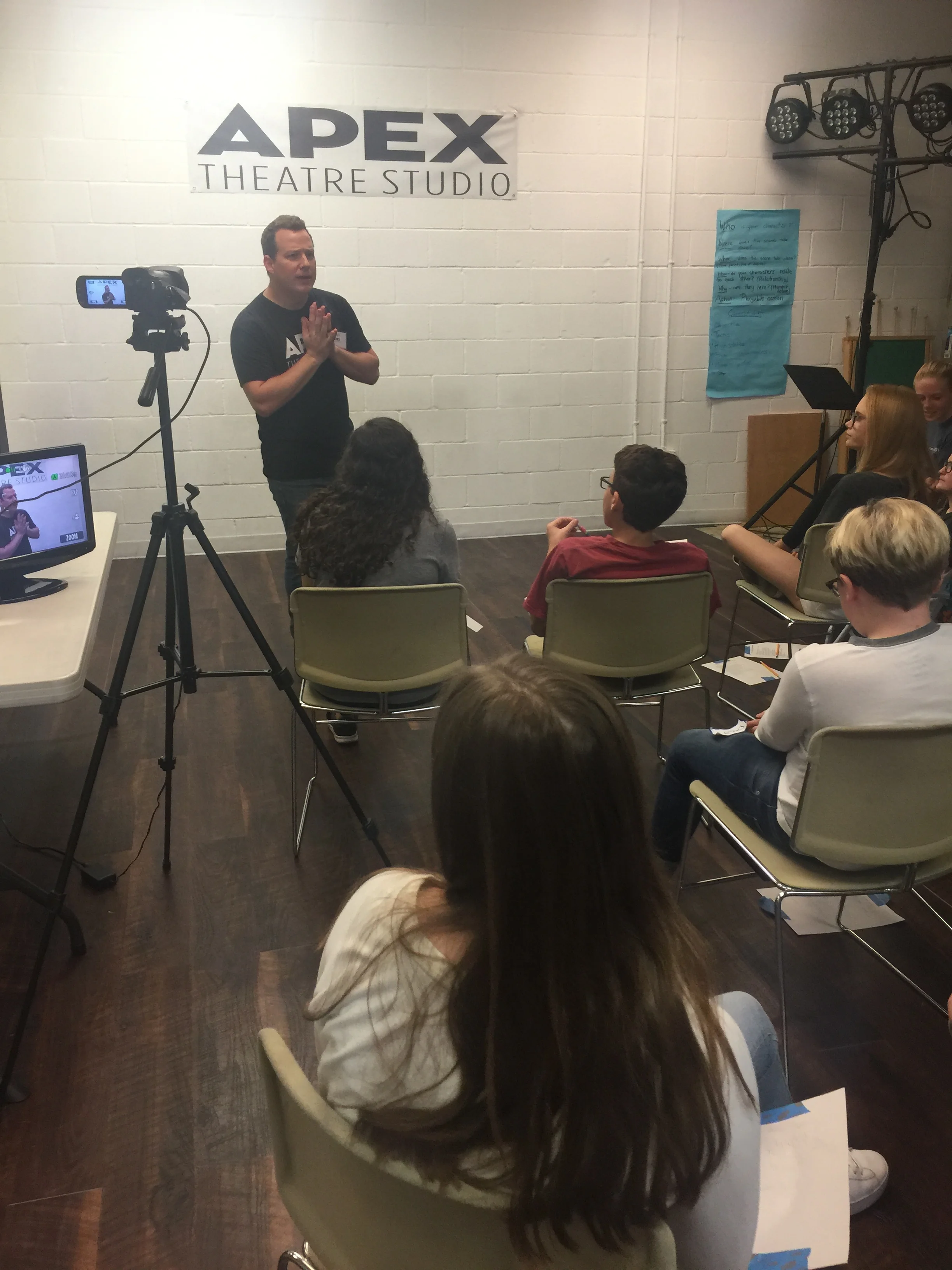“Raines Carr has been one of the most influential teachers I have had in my life. He is passionate about the subject he is teaching and the care and faith he has in his students is obvious. He relates well to students and isn’t focused so much on the amount of work that is given, but the growth that his students have. ”
“Being in Professor Carr’s class was splendid. I enjoyed every moment and I feel that I grew tremendously as not only a student, but as a performer and an artist. I appreciate everything that I learned from Professor Carr, and I highly recommend this class to anyone that is interested in theater.”
Teaching Philosophy
At the heart of my teaching philosophy is a single guiding principle: perspective. Over my many years as a theatre educator at the collegiate level, my goal has remained constant—to leave every student with a more open, empathetic, and inquisitive lens through which to view the world, the arts, and their fellow human beings.
As a theatre artist and educator, I see myself not as a lecturer delivering content from a distance, but as a collaborator—an active participant in my students’ journeys. I approach teaching with the belief that education, particularly in the arts, must be flexible, human-centered, and deeply connected to experience. Theatre is a subjective, emotional, and intellectual discipline, and my teaching reflects that. I challenge students to explore material from multiple angles and to push beyond prescriptive thinking, encouraging them to examine, question, and ultimately broaden their own perspectives.
Theatre saved me. As an undergraduate at Florida State University, I studied under passionate mentors who taught me to explore the nuances of text, uncover emotional truth, and embrace vulnerability. Their commitment to the art form inspired me to build a career grounded in both creation and education. I now strive to instill that same sense of discovery and wonder in my students—the same spark I felt at age fourteen when I saw A Streetcar Named Desire at a local community theatre. That moment redirected my life, giving it clarity and purpose.
I have taught a wide range of students over the years—from economically disadvantaged high schoolers to undergraduate majors in BFA and BA programs. One of the most formative teaching experiences of my career took place at an under-resourced school in a district often ranked among the lowest in the country. There, I worked with students facing systemic challenges far beyond the classroom: absent caregivers, food insecurity, unsafe neighborhoods. Yet, they approached theatre with resilience and emotional maturity, creating compelling, complex work that became a vital outlet for expression. Their commitment reinforced my belief in the transformative power of the arts, and it remains one of the most rewarding chapters of my career.
In that role, I had the freedom to survey students and tailor the curriculum to their needs. I encouraged them to create original work, reinterpret traditional texts, and make artistic choices rooted in their own experiences. Many went on to receive awards and scholarships for their achievements. Their innovation and bravery continue to influence my teaching, reminding me to bring relevance, creativity, and adaptability into every classroom and rehearsal room.
My pursuit of an MFA in Directing was a natural continuation of this work, allowing me to hone my craft and better serve college-level students from diverse educational and financial backgrounds. In the university environment, I’ve found that students sometimes disengage from challenging or unfamiliar material. My role is to guide them toward a deeper understanding—not by imposing meaning, but by helping them discover the human truth embedded in every work of art. I encourage them to see not what separates them from a piece, but what connects them to it.
Theatre, at its core, is an exploration of what it means to be human. My classroom is a space where differences are respected, voices are amplified, and each student’s unique background is seen as a strength. Teaching theatre is not about delivering facts—it's about helping students draw connections: between actor and character, between classmate and collaborator, between artist and audience. Ultimately, I aim to help students develop their own artistic voice, grounded in empathy, curiosity, and confidence.
As a seasoned educator, artist, and lifelong learner, I remain dedicated to nurturing the next generation of theatre practitioners. My students continually teach me as much as I teach them, and I consider it a privilege to help them discover their purpose, perspective, and passion through the arts.
“Professor Carr was definitely the best professor I have ever had at this college in the past three years of attending FSCJ! ”
On-Camera acting workshop at Apex Theatre Studio
“Prof. Carr is probably my favorite professor I’ve had in four years. He has such a knack for creating good discussion and getting us to really understand the intricacies of the subject matter. I really looked forward to coming into class to learn.”

